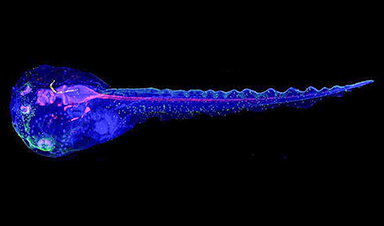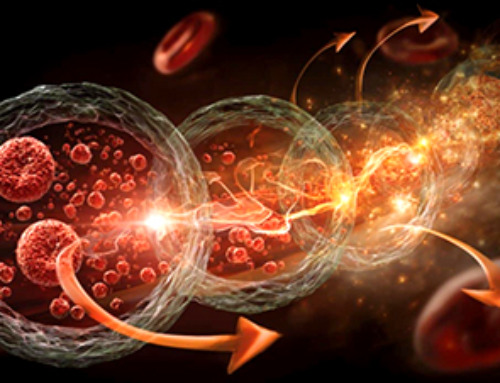New research shows that mental exertion is often linked with negative emotions.
A meta-analysis of 170 studies revealed that regardless of the task or population, increased mental effort correlates with feelings of frustration and stress. This phenomenon is less pronounced in Asian populations, possibly due to different educational experiences. Despite this, people still engage in mentally challenging tasks like chess, driven by the rewards rather than enjoyment of the effort itself.
Mental Effort and Discomfort
According to research published by the American Psychological Association, if somebody complains that it hurts to think, they may be onto something, as mental exertion appears to be associated with unpleasant feelings in many situations.
“Managers often encourage employees, and teachers often encourage students, to exert mental effort. On the surface, this seems to work well: Employees and students do often opt for mentally challenging activities,” said senior author Erik Bijleveld, PhD, of Radboud University. “From this, you may be tempted to conclude that employees and students tend to enjoy thinking hard. Our results suggest that this conclusion would be false: In general, people really dislike mental effort.”
The research was published in the journal Psychological Bulletin.
Insights From a Comprehensive Meta-Analysis
Researchers conducted a meta-analysis of 170 studies, published between 2019 and 2020 and comprising 4,670 participants, to examine how people generally experience mental effort. They did so by testing whether mental effort is associated with unpleasant feelings and whether that association depends on the task or the population involved.
The studies used a variety of participants (e.g., healthcare employees, military employees, amateur athletes, college students) from 29 countries and involved 358 different cognitive tasks (e.g., learning a new technology, finding one’s way around an unfamiliar environment, practicing golf swings, playing a virtual reality game). In all studies analyzed, participants reported the level of effort they exerted as well as the extent to which they experienced unpleasant feelings such as frustration, irritation, stress, or annoyance.
Across all populations and tasks, the greater the mental effort, the greater the unpleasantness experienced by participants.
Design Considerations for Professionals
“Our findings show that mental effort feels unpleasant across a wide range of populations and tasks,” said Bijleveld. “This is important for professionals, such as engineers and educators, to keep in mind when designing tasks, tools, interfaces, apps, materials, or instructions. When people are required to exert substantial mental effort, you need to make sure to support or reward them for their effort.”
One interesting finding, according to Bijleveld, was that while the association between mental effort and adverse feelings was still significant, it was less pronounced in studies conducted in Asian countries compared with those in Europe or North America. This fits with the general idea that the aversiveness of mental effort may depend on people’s learning history. High school students in Asian countries tend to spend more time on schoolwork than their European or North American counterparts and may therefore learn to withstand higher levels of mental exertion early on in their lives, he said.
Behavioral Implications of Mental Effort
More important is the real-world observation that despite the aversive nature of mentally challenging tasks, people still voluntarily engage in them said Bijleveld.
“For example, why do millions of people play chess? People may learn that exerting mental effort in some specific activities is likely to lead to reward. If the benefits of chess outweigh the costs, people may choose to play chess, and even self-report that they enjoy chess,” he said. “Yet, when people choose to pursue mentally effortful activities, this should not be taken as an indication that they enjoy mental effort per se. Perhaps people choose mentally effortful activities despite the effort, not because of it.”
Reference: “The unpleasantness of thinking: A meta-analytic review of the association between mental effort and negative affect” by Louise David, MSc, Maastricht University; Eliana Vassena, PhD, and Erik Bijleveld, PhD, Radboud University, 5 August 2024, Psychological Bulletin.
DOI: 10.1037/bul0000443
News
AI matches doctors in mapping lung tumors for radiation therapy
In radiation therapy, precision can save lives. Oncologists must carefully map the size and location of a tumor before delivering high-dose radiation to destroy cancer cells while sparing healthy tissue. But this process, called [...]
Scientists Finally “See” Key Protein That Controls Inflammation
Researchers used advanced microscopy to uncover important protein structures. For the first time, two important protein structures in the human body are being visualized, thanks in part to cutting-edge technology at the University of [...]
AI tool detects 9 types of dementia from a single brain scan
Mayo Clinic researchers have developed a new artificial intelligence (AI) tool that helps clinicians identify brain activity patterns linked to nine types of dementia, including Alzheimer's disease, using a single, widely available scan—a transformative [...]
Is plastic packaging putting more than just food on your plate?
New research reveals that common food packaging and utensils can shed microscopic plastics into our food, prompting urgent calls for stricter testing and updated regulations to protect public health. Beyond microplastics: The analysis intentionally [...]
Aging Spreads Through the Bloodstream
Summary: New research reveals that aging isn’t just a local cellular process—it can spread throughout the body via the bloodstream. A redox-sensitive protein called ReHMGB1, secreted by senescent cells, was found to trigger aging features [...]
AI and nanomedicine find rare biomarkers for prostrate cancer and atherosclerosis
Imagine a stadium packed with 75,000 fans, all wearing green and white jerseys—except one person in a solid green shirt. Finding that person would be tough. That's how hard it is for scientists to [...]
Are Pesticides Breeding the Next Pandemic? Experts Warn of Fungal Superbugs
Fungicides used in agriculture have been linked to an increase in resistance to antifungal drugs in both humans and animals. Fungal infections are on the rise, and two UC Davis infectious disease experts, Dr. George Thompson [...]
Scientists Crack the 500-Million-Year-Old Code That Controls Your Immune System
A collaborative team from Penn Medicine and Penn Engineering has uncovered the mathematical principles behind a 500-million-year-old protein network that determines whether foreign materials are recognized as friend or foe. How does your body [...]
Team discovers how tiny parts of cells stay organized, new insights for blocking cancer growth
A team of international researchers led by scientists at City of Hope provides the most thorough account yet of an elusive target for cancer treatment. Published in Science Advances, the study suggests a complex signaling [...]
Nanomaterials in Ophthalmology: A Review
Eye diseases are becoming more common. In 2020, over 250 million people had mild vision problems, and 295 million experienced moderate to severe ocular conditions. In response, researchers are turning to nanotechnology and nanomaterials—tools that are transforming [...]
Natural Plant Extract Removes up to 90% of Microplastics From Water
Researchers found that natural polymers derived from okra and fenugreek are highly effective at removing microplastics from water. The same sticky substances that make okra slimy and give fenugreek its gel-like texture could help [...]
Instant coffee may damage your eyes, genetic study finds
A new genetic study shows that just one extra cup of instant coffee a day could significantly increase your risk of developing dry AMD, shedding fresh light on how our daily beverage choices may [...]
Nanoneedle patch offers painless alternative to traditional cancer biopsies
A patch containing tens of millions of microscopic nanoneedles could soon replace traditional biopsies, scientists have found. The patch offers a painless and less invasive alternative for millions of patients worldwide who undergo biopsies [...]
Small antibodies provide broad protection against SARS coronaviruses
Scientists have discovered a unique class of small antibodies that are strongly protective against a wide range of SARS coronaviruses, including SARS-CoV-1 and numerous early and recent SARS-CoV-2 variants. The unique antibodies target an [...]
Controlling This One Molecule Could Halt Alzheimer’s in Its Tracks
New research identifies the immune molecule STING as a driver of brain damage in Alzheimer’s. A new approach to Alzheimer’s disease has led to an exciting discovery that could help stop the devastating cognitive decline [...]
Cyborg tadpoles are helping us learn how brain development starts
How does our brain, which is capable of generating complex thoughts, actions and even self-reflection, grow out of essentially nothing? An experiment in tadpoles, in which an electronic implant was incorporated into a precursor [...]





















